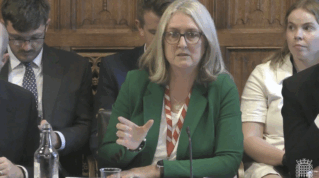This week’s announcement by the deputy prime minister that government plans to transfer more powers from Whitehall to local communities is welcome. The devolution white paper is an opportunity to put adult learning at the heart of local education plans.
Communities understand their own needs best. However, we all know engaging with local levers of power is never easy. Devolution should not just be about the machinery of councils but about empowering active citizens.
Putting community need at the heart of devolution could help to tackle some of our more challenging civic problems, from reinvigorating community activities such as volunteering to countering worrying trends in social division fuelled by disinformation.
To achieve this, resources must be directed to communities so that they can access and embrace devolved powers fully.
Rightly, ministers and mayors are talking about the importance of investing in skills and opportunities for growth. But with the right kind of investment, devolution’s impact could be both braoder and deeper than that.
For example, investment in community adult education is a powerful way to encourage active citizens; it is shown to increase a sense of belonging and raise participation in community activities.
Mayors will be able to choose to use their education budgets to fund courses that deliver these broader outcomes, helping their communities to understand their civic rights and to work towards better cohesion.
Community adult education providers are active across the country, including those which will see devolved powers for the first time. They will be instrumental in shaping this investment effectively, and will no doubt advise that a broad and flexible adult education offer can:
- support adults into work, including those who are classed as economically inactive
- enable better-informed and engaged citizens, and tackle the dangers of disinformation
- improve health and wellbeing
- create greater community connectedness and reduce isolation
- tackle deficits in essential skills like literacy, numeracy and digital
- and build and celebrate a more vibrant and diverse cultural scene.
This wide range of positive impacts will only come if mayors are able and willing to support a wide range of community organisations alongside skills providers and colleges.
The administration of devolution presents a real risk for organisations like ours
To fully understand local and regional need, mayoral and combined authorities should facilitate direct engagement with their local communities through local organisations and the voluntary sector. Indeed, the ‘Civil Society Covenant‘ being developed between the voluntary sector and central government could provide a useful framework for joint working at local and regional levels too.
The white paper will bring additional powers to existing mayors and complete the jigsaw of English regional devolution. As a national charity with hyper-local delivery, we welcome this direction of travel. Trusted organisations like ours already work within communities and stand ready to deliver even more for them.
However, the administration of devolution also presents a real risk for organisations like ours. Unfortunately, even in many areas where we are well established and have been delivering courses for adult learners for decades, the transition to a new devolved funding framework has been problematic. It has even disrupted or reduced support for adult learners in some cases.
For example, some mayoral authorities adopted the location of an organisation’s head office as a proxy for its local credential for funding eligibility. Others limit their skills budget to courses designed to progress people into work, leaving out equally valuable courses that promote wellbeing or community connections. As a result, well-established provision has already ended in some areas.
As a public body and a charity, the WEA is eligible for all the same grant programmes (and is subject to all the same regulatory frameworks) as, say, a local college. Yet on several occasions new authorities have defined the WEA as out-of-scope for funding through misunderstanding of our status and local track record.
It is crucial, therefore, that new local and regional leaders recognise the needs of their communities and understand the nature of the trusted organisations already active in their areas.
We must ensure a smooth transition to this devolved settlement so that adult education remains truly within reach. That’s why we want to see the minister for housing, communities and local government introduce a duty on new and expanding regional authorities to undertake full risk assessments and to publish a full rationale for their decisions in the intriduction of new funding frameworks.
This will reduce the risk of errors in classification of existing providers, ensure a level of continuity which is especially important in communities with low infrastructure, and align new funding more clearly with the needs of local people.

















Your thoughts